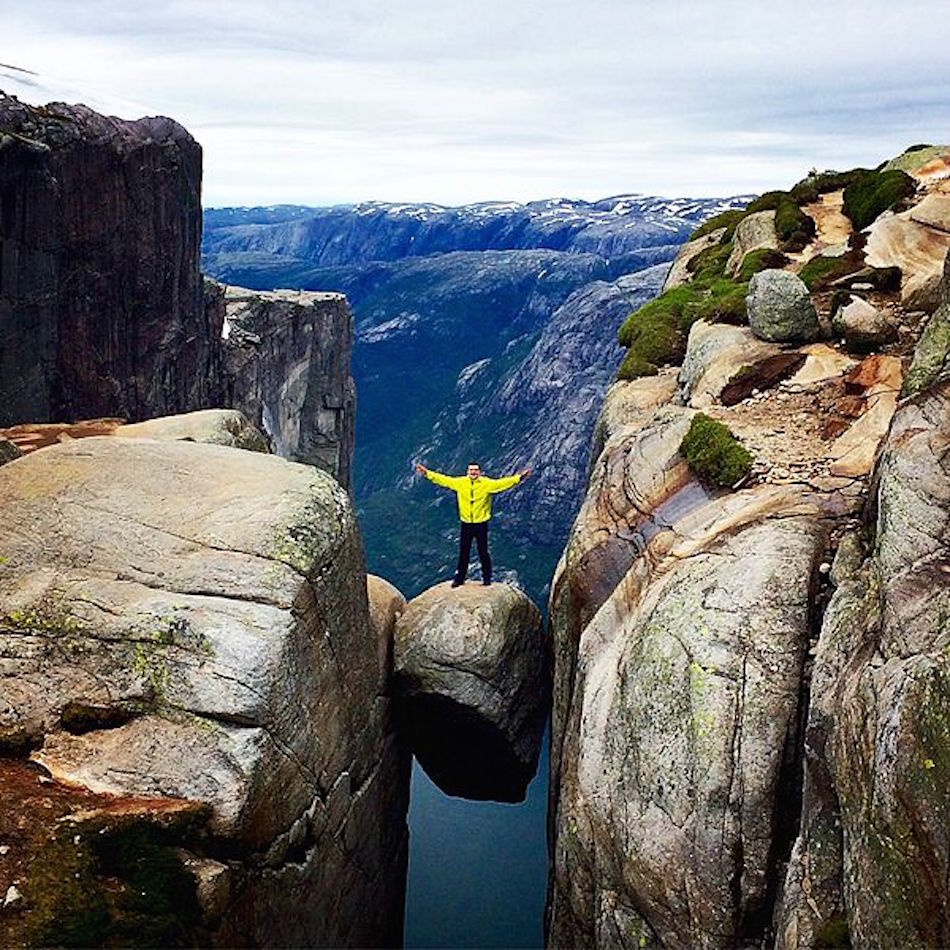Do you find yourself in a state of fear often?
Fear is defined as "an unpleasant emotion caused by the belief that someone or something is dangerous, likely to cause pain, or a threat." But what does that really mean?
Why do we fear the things we do, even when we know the fear is illogical? What causes the fear in our bodies? Why is it so hard to shake?
As someone who is scared of a lot of things (ghosts, sharks, mortality, aliens, sickness, losing loved ones, the sky falling down on top of me), I would personally like to understand what it's all about a little bit more; I want more facts about fear.
As it turns out, we need fear. Fear helps us determine how to stay safe in life. Sometimes, though, it can get out of hand after certain experiences.
When do you get the most frightened, and what are you most afraid of in life? How do you deal with your own personal fears?
These 10 facts about fear will help you understand everything a bit better.
Please SHARE with family and friends on Facebook!
1. We Can Smell It

According to a recent study published in Psychological Science, humans react to each others' scents, and can smell fear on others. More specifically, in the type of sweat they produce.
This is why crowds can erupt in mass panic, and why a room full of people telling ghost stories might all get extra frightened.
2. Even Irrational Fears Are Very Real

Rational fear is the fear of something real, something that is entirely plausible or that will happen. An example is the fear of mortality, because all humans on earth are mortal.
Irrational fears are those of something implausible – but that doesn't mean the fear doesn't come from a real place in your psyche.
The fact of the matter is that fear is fear, no matter which way you swing it. If you need help coping with a fear, never be ashamed to seek it.
3. You Can Inherit Fear

That's right, fears can be passed down to you from your parents and grandparents, just like all your other genetic traits.
4. But Most Fear Is Learned

Much like certain topics in school, fear is often learned. We aren't born with most fears.
Fear comes with knowledge and experience, which is why almost everyone fears different things. We all encounter different scary moments in life, so we all come to fear different, sometimes very strange things.
5. Fear Is The Opposite Of Love

Hate's not the opposite of love, fear is. Oxytocin, the chemical your brain releases when in love, can help override learned fear, such as fears that result from a life trauma.
Yep, love of all kinds can help you become a less fearful person.
6. Fears Can Disappear In Sleep

Research has shown that sleep can erase learned fears when a person is exposed to an associated scent during sleep. This sounds specific, but it points to sleep offering a unique state in which select fears can be eliminated.
So, maybe next time you're scared, try sleeping it off!
7. You Can Be Literally Scared To Death

If you can't calm down after the initial adrenaline rush that comes along with shock, the adrenaline and calcium keeps pouring into your heart and causes it to tremor instead of beat normally.
In extremely rare cases, this can cause your blood pressure to drop, cause you to slip into unconsciousness, and ultimately cause death.
This can happen to people with perfectly healthy hearts, but it is also not all too common. You can help keep this from happening to you by practicing yoga, meditation, or other mindful techniques.
8. Basic Fears Are Connected To Survival

Why are so many people afraid of heights or scary animals? Human beings learn some fears more readily than others if they are linked to survival.
In psychology, this is called preparedness. Our human instinct tells us that falling from a great height probably wouldn't bode well for our physical well-being.
9. Fear Can Distort Reality

Those with specific fears can lose touch with reality at certain points.
For example, a person who fears small spaces (claustrophobia), will perceive their space as smaller than it actually is. Those who fear spiders will say that they are bigger than they actually are, and those afraid of heights might see a five-foot drop as much, much higher. You get the gist.
10. Confronting Your Fears Can Actually Help

For about 90 percentof folks with specific phobias, facing their fears in a safe, controlled environment can help them ultimately overcome them. Sometimes you really just have to be brave!
Did you know any of this about fear? Please SHARE with your family and friends on Facebook!




